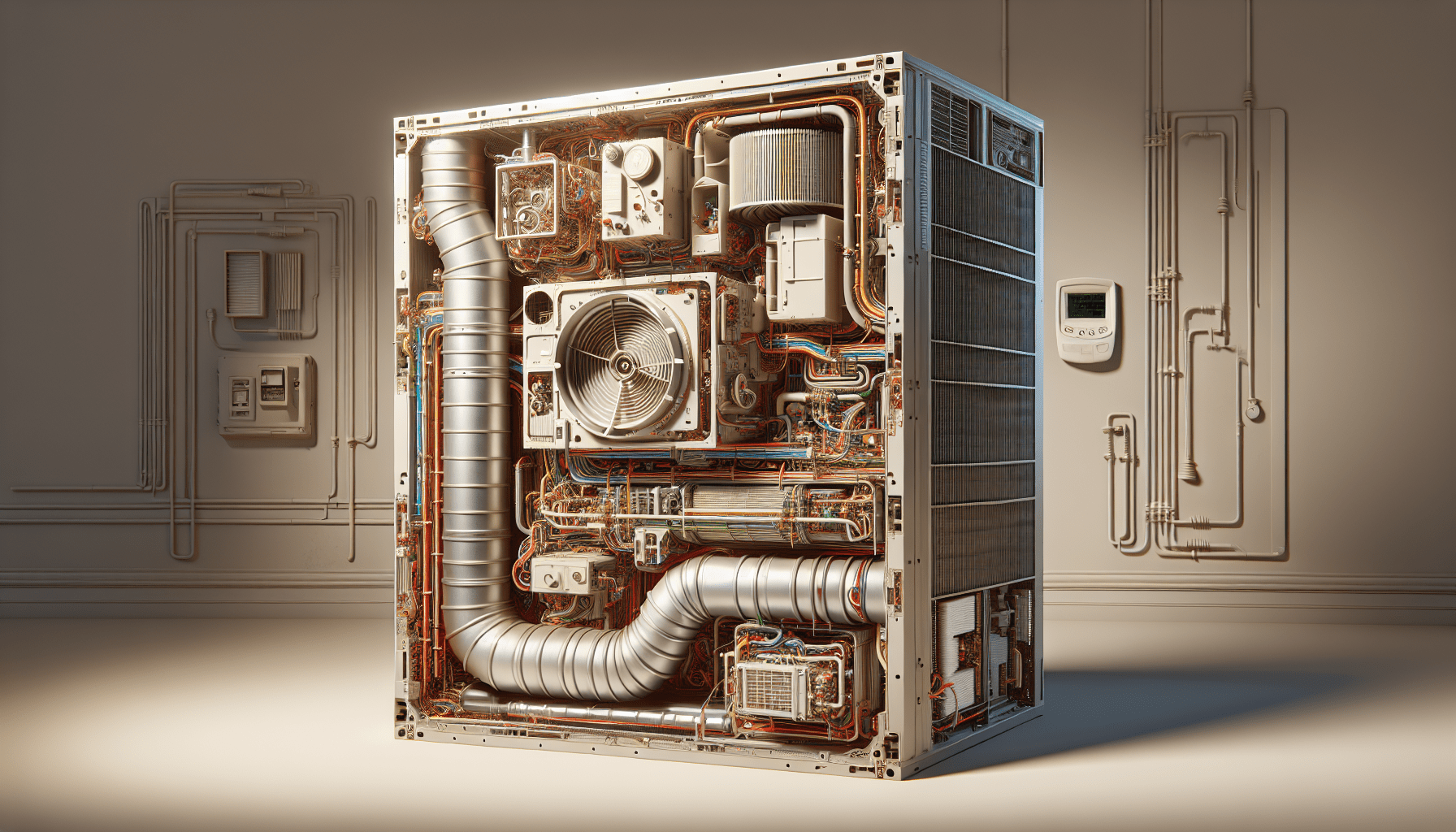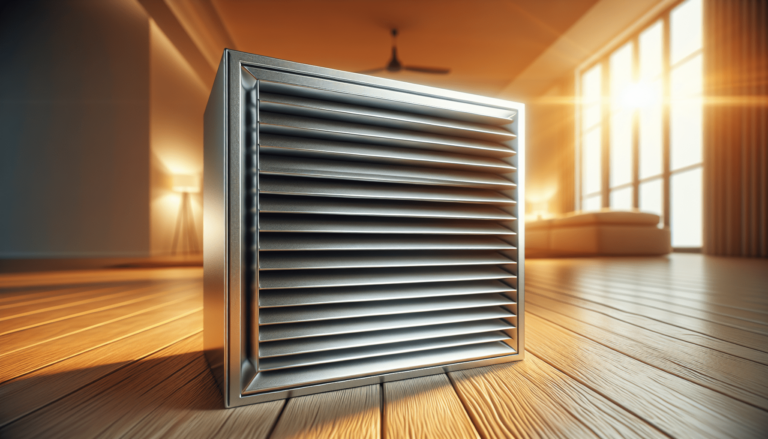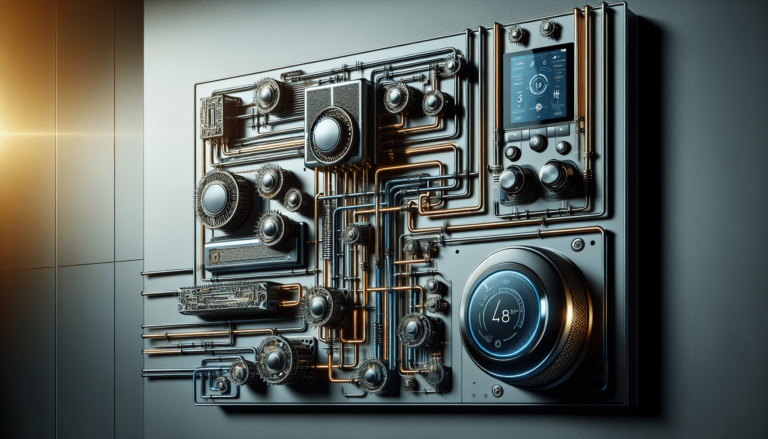

HVAC Services
Get Professional Repairs From The Area's Trusted HVAC Technicians. Ask About Our Services! We Offer Professional Heating & Cooling System Repairs And Guarantee Long-Lasting Results.
Got Question? Call us: (850) 678-2665Financing
Emergency HVAC Issues And How To Address Them
Emergency HVAC issues can happen anytime, leaving you sweltering or freezing. Learn common problems and solutions to stay comfortable. Trust Tempacure for expert help.

Emergency HVAC issues can strike at the most inconvenient times, leaving you in a sweltering home or a freezing office. By understanding common HVAC problems and knowing how to address them, you can stay comfortable year-round. This article offers practical advice on identifying and resolving urgent HVAC concerns. For reliable support, trust Tempacure Heating and Air Conditioning. Located at 325 Cedar Ave S, Suite B, Niceville, FL 32578, Tempacure is just a call away at (850) 678-2665 or visit their website at https://tempacurehvac.com/.
Have you ever found yourself wondering what you would do if your HVAC system went kaput in the dead of night? There’s nothing quite like the realization that your heating, ventilation, and air conditioning system has decided to throw in the towel just when you need it most. But before you spiral into a frenzy, let’s go over some practical, friendly tips to navigate through those dreaded emergency HVAC issues.

Understanding Your HVAC System
To tackle HVAC problems effectively, you first need to understand what an HVAC system entails. Essentially, it stands for Heating, Ventilation, and Air Conditioning. Your HVAC system works tirelessly year-round to keep your indoor environment comfortable, irrespective of the weather outside.
Components of an HVAC System
your HVAC system isn’t a single unit but an assembly of multiple components working in harmony. Here are the key parts:
- Thermostat: The brain of your HVAC system.
- Furnace: Responsible for heating the air.
- Heat Exchanger: Transfers heat to the air.
- Evaporator Coil: Cools the air when the AC is running.
- Condensing Unit: The big box unit outside your house.
- Refrigerant Lines: Fluid that cools and heats the air.
- Ductwork: Channels for the cooled or heated air.
- Vents: Where air flows out into rooms.
By understanding these components, you’ll have a better grip on what could go wrong and how to address it.
Common Emergency HVAC Issues
Look, things can go south with your HVAC system, and they usually do at the worst possible time. Here are some common emergencies you might face and how you can handle them.
No Heat
When your heating system goes out in the middle of a chill spell, it’s more than just inconvenient—it’s a potential health hazard. Here’s how to troubleshoot:
- Check the Thermostat: Make sure it’s set to “heat” and the temperature setting is appropriate.
- Inspect the Furnace: If you have a gas furnace, ensure the pilot light is on. For electric furnaces, check the breaker.
- Look for Airflow Issues: Dirty filters can block airflow. Replace them regularly.
No Cooling
Summer can be unbearable without air conditioning. If your AC decides to take a vacation, these steps might help:
- Thermostat Check: Ensure it’s switched to “cool” and set below room temperature.
- See if the Unit is Frozen: Sometimes an AC unit can freeze. Turn it off to let it thaw.
- Reset the Circuit Breaker: This might solve temporary electrical issues.
Odd Noises
HVAC systems aren’t exactly silent, but you know your system well enough to know its regular hums and rattles. Any new, odd noises could be a red flag. Here’s what they might mean:
- Squealing Sounds: Likely a problem with the blower or motor.
- Banging Noises: Could be a ductwork issue or a loose component.
- Humming: Might indicate an electrical problem.
Uneven Temperatures
When half your home feels like a sauna and the other half like an igloo, the discomfort is real. Here are some common fixes:
- Check Vents and Ducts: Make sure they aren’t blocked or leaking.
- Thermostat Location: A poorly placed thermostat can lead to uneven heating/cooling.
- Balancing Dampers: Adjust the dampers in your ductwork to balance airflow.
DIY Troubleshooting Tips
Before you call in the cavalry from Tempacure Heating and Air Conditioning, here are some quick DIY tips to address those pesky HVAC issues.
Replacing Filters
This is by far the easiest and most effective thing you can do. A clogged filter can strain your system and reduce its efficiency. Plan to change your filters every 1-3 months.
Resetting Breakers
Sometimes, your HVAC unit needs a simple reset. Head over to your home’s electrical panel and flip the breakers. It’s like giving your HVAC system a little caffeine jolt.
Clearing Debris
Make sure that the outdoor condensing unit is free from debris like leaves, twigs, and dirt. Give it a good rinse every now and then.
Checking Air Vents
Ensure no furniture or drapes block your air vents. Proper airflow maintains system efficiency.
When to Call the Professionals
Sometimes, despite your best efforts, DIY fixes won’t cut it. As much as we’d like to don our superhero capes, some HVAC issues require professional expertise. Here’s when to make that call to Tempacure Heating and Air Conditioning:
Persisting Problems
If you’ve checked the thermostat, reset the breakers, and replaced the filters but the issue persists, it’s time to call in the pros. Persistent problems could indicate deeper issues that require professional diagnostics and repair.
Safety Concerns
If you smell gas or see sparks, don’t try to fix it on your own. Shut off your system and call Tempacure immediately. Safety should always be your top priority.
Complex Repairs
For issues like refrigerant leaks, electrical problems, or motor failures, it’s best to let a professional handle it. These repairs often require specialized tools and knowledge.

Preventive Measures
They say an ounce of prevention is worth a pound of cure, and your HVAC system is no different. Regular maintenance can save you from most emergency situations.
Scheduled Inspections
Having your HVAC system inspected twice a year can help catch problems before they become emergencies. Many HVAC companies, like Tempacure, offer maintenance plans that include regular inspections.
Seasonal Maintenance
In Florida, where Tempacure Heating and Air Conditioning is based, the weather can be pretty extreme. Prepping your HVAC system for both the hot and cool seasons with seasonal maintenance tunes it up for the task ahead.
Upgrade When Necessary
Older HVAC systems are more prone to breakdowns and less efficient. If your system is over 10-15 years old, consider an upgrade. Newer models are more efficient and reliable.
Choosing the Right HVAC Professional
When it’s time for that inevitable repair or replacement, choosing the right HVAC professional is crucial. You want someone reliable, experienced, and honest. Here’s why Tempacure Heating and Air Conditioning is your best bet:
Location and Accessibility
Located at 325 Cedar Ave S, Suite B, Niceville, FL 32578, Tempacure is conveniently situated to offer quick emergency services to the local community.
Experience and Expertise
With years of experience under their belt, Tempacure’s team knows the ins and outs of HVAC systems. They’re well-versed in both common and complex issues.
Customer Service
Tempacure is renowned for its customer-first approach. You can rest easy knowing they prioritize your comfort and satisfaction. Give them a call at (850) 678-2665 or visit their website at Tempacure Heating and Air Conditioning.
Frequently Asked Questions
How Long Should an HVAC System Last?
The average lifespan of an HVAC system is around 15-20 years. Proper maintenance can extend this lifespan.
When Should I Replace My HVAC System?
If your system is over 10 years old and requires frequent repairs, it might be time to consider a replacement.
What Does Regular Maintenance Include?
Regular maintenance typically includes cleaning and inspecting components, checking refrigerant levels, testing for leaks, and ensuring the system operates efficiently.
Can I Install an HVAC System Myself?
Installing an HVAC system is complex and requires specialized tools and knowledge. It’s best to leave it to professionals.
What is the Average Cost of an HVAC Repair?
The cost of HVAC repairs can vary widely depending on the issue. However, minor repairs can range from $150 to $500, while major repairs or replacements can cost several thousand dollars.
Conclusion
There you have it—a friendly guide to understanding emergency HVAC issues and how to address them. Remember, while some problems can be fixed with a little DIY effort, others require professional intervention. Don’t hesitate to reach out to Tempacure Heating and Air Conditioning for all your HVAC needs. It’s better to sit back and relax while the experts ensure your system runs smoothly. Keep cozy, stay cool, and may your HVAC system live long and prosper!







